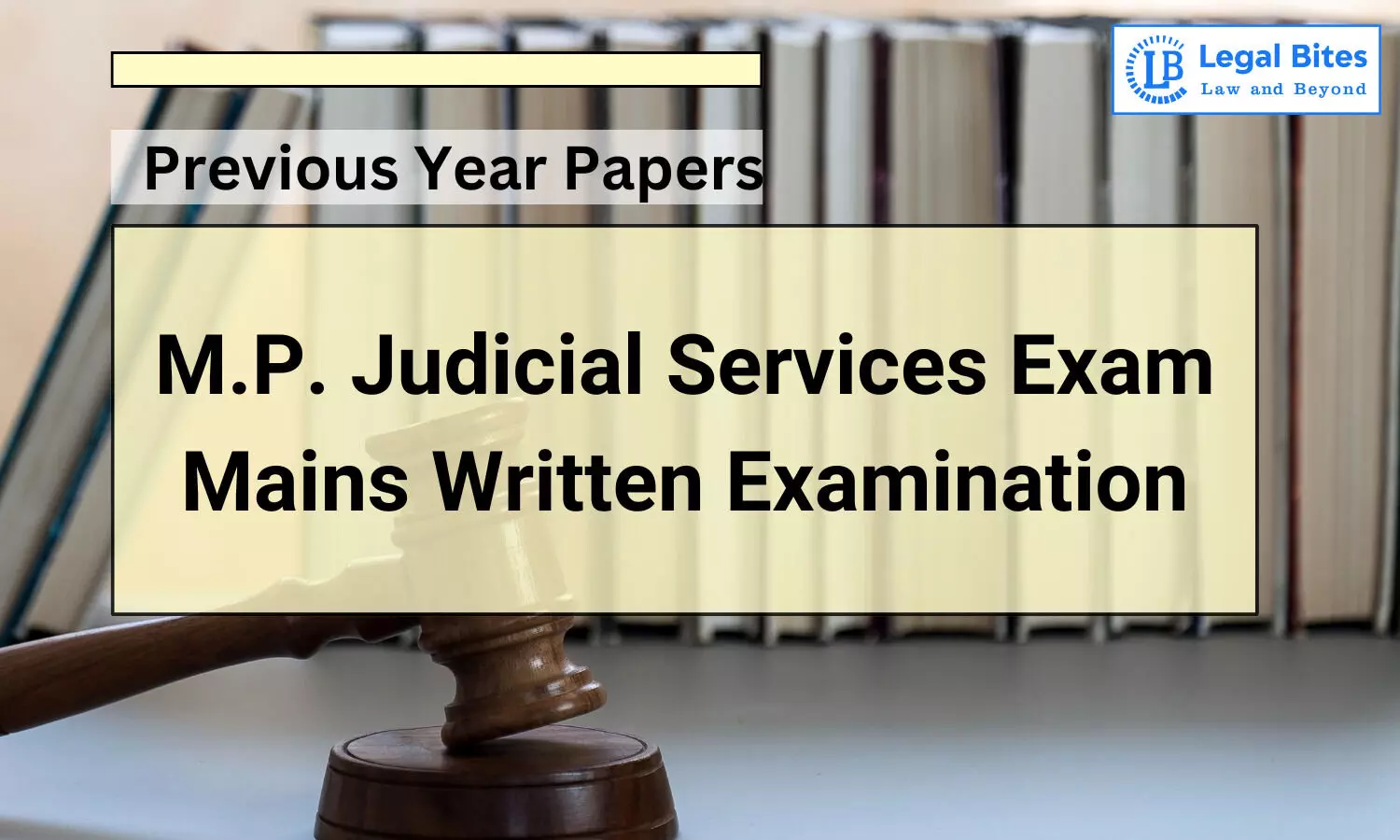M.P. Judicial Services Exam Mains 2017 Previous Year Paper III | Local Laws, Criminal Laws, and Procedure
Candidates preparing for MP Judicial Services should solve the M.P.(Madhya Pradesh) Judicial Services Mains 2017 Paper-III;

Candidates preparing for M.P. Judicial Services should solve the M.P.(Madhya Pradesh) Judicial Services Mains 2017 Paper-III and other previous year question papers before they face Prelims and Mains.
Additionally, it gives an idea about the syllabus and the way to prepare the subjects by keeping the previous year's questions in mind. All toppers are mindful and cognizant of the types of questions asked by the MPCJ, to be aware of the different tricks and types of questions. This should be done by every aspirant when starting their preparation. It is very important to have an overall understanding of the pattern and design of questions.
Only practising original question papers will give you a real feel of the pattern and style of the questions. Here’s Madhya Pradesh Judicial Services Mains 2017 Previous Year Paper III (Local Laws, Criminal Laws, and Procedure).
M.P. Judicial Services (Civil Judge) Mains Examination 2017PAPER III (Local Laws, Criminal Laws and Procedure)
Time: 3 Hours
Instructions
- All questions are compulsory. Answer to all Questions must be given in one language either in Hindi or in English. In case of any ambiguity between English and Hindi version of the question, the English version shall prevail.
- Write your Roll No. in the space provided on the first page of Answer Book or Supplementary Sheet. Writing of his/her own Name or Roll No. or any Number or any mark of identification in any form in any place of the Answer Book not provided for, by which the Answer Book of a candidate may be distinguished/ identified from others, is strictly prohibited and shall, in addition to other grounds, entail cancellation of his/her candidature.
- Writing of all answers must be clear & legible. If the writing of Answer Book written by any candidate is not clear or is illegible in view of Valuer/Valuers then the valuation of such Answer Book may not be done.
M.P. Accommodation Act, 1961
Question 1
a) Under what circumstances defence may be struck out? What would be the consequence of striking out defence? [8 Marks]
b) Enumerate any four grounds on which eviction of tenants from accommodation can be sought under the Act? [8 Marks]
M.P Land Revenue Code, 1959
Question 2
a) Define “Holding”? Discuss elaborately about the partition of holdings? [8 Marks]
b) Explain briefly the procedure prescribed to be adopted against a person in unauthorised possession of unoccupied or Abadi land. [8 Marks]
Indian Evidence Act, 1872
Question 3
a) “A” tried for murder of “B”. A says to police officer “I have buried the knife with which I committed the murder of “B”. He shows the place where knife was buried. Knife was taken out.
Whether the statement “with which I committed murder of B” is admissible? Discuss. [8 Marks]
b) Define accomplice. What is the value of its evidence and how for its evidence is admissible. [8 Marks]
Indian Penal Code, 1860
Question 4
a) When offence falls under Sec 304 Part (I) and when falls under Sec 304 (Part II) of I.P.C.? Discuss. [8 Marks]
b) What do you mean by term Criminal Conspiracy? How is it punishable? Discuss differences between criminal liability under Section 34 IPC and criminal conspiracy under section 120A IPC. [8 Marks]
Criminal Procedure Code, 1973
Question 5
a) “Every offence shall be ordinarily be inquired into and tried by a court within whose local jurisdiction it was committed.” Examine this proposition of law. Do you think there is any exception to this rule? [8 Marks]
b) What procedure is followed by a magistrate on receiving a complaint under Code of Criminal Procedure? [8 Marks]
Negotiable Instruments Act, 1881
Question 6
Discuss the essential ingredients of offence under S. 138 of Negotiable Instrument Act, 1881. Which defence is not allowed in any prosecution under S. 138?
[8 Marks]
Mixed
Question 7
Write short notes on: [12 Marks]
a) Public Document
b) Standard Rent
c) Unlawful Assembly

